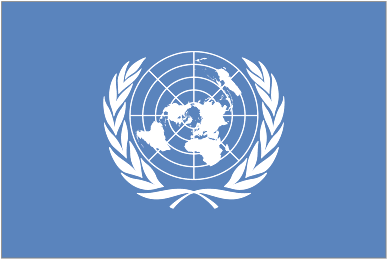
Citing the Syrian Government’s “manifest” failure to protect its population, two senior United Nations officials today called on the international community to take immediate, decisive action to meet its responsibility to protect civilians in the country from further atrocities.
“With the increasing violence and deepening sectarian tensions, the risk of further mass atrocity crimes is high. The time for action is now,” the Special Advisers of the Secretary-General on the Prevention of Genocide and on the Responsibility to Protect, Francis Deng and Edward Luck, respectively, said in a joint statement.
They called on the international community to take action to meet its ‘responsibility to protect’ populations at risk of further atrocities in Syria, taking into consideration “the full range of tools available under the United Nations Charter.”
Agreed at a summit of world leaders in 2005 and sometimes known as ‘R2P,’ the principle of the responsibility to protect holds States responsible for shielding their own populations from genocide, war crimes, ethnic cleansing, and related crimes against humanity and requires the international community to step in if this obligation is not met.
The UN estimates that more than 10,000 people, mostly civilians, have been killed in Syria and tens of thousands displaced since the uprising against President Bashar al-Assad began some 16 months ago.
The two men said they were gravely alarmed by the widespread reports of mass killings in attacks that involved a series of Government artillery and tank shellings on residential neighbourhoods, as well as alleged attacks against civilians and civilian infrastructure by a pro-government militia and other armed groups, which may constitute crimes against humanity.
“These massacres underscore the Syrian Government’s manifest failure to protect its population,” they stated.
The mass killings of civilians in Houla and Mazraat al-Qubeir, including the brutal assault and murder of women and children at close range, represent an alarming escalation in targeted attacks against civilians, they said, adding, “They must cease immediately.”
The Special Advisers underlined the importance of unimpeded access for the UN Supervision Mission in Syria (UNSMIS) to carry out its mandate, particularly in ascertaining the facts of such killings.
They also called on all parties to immediately end all acts of violence and commit to implementing the six-point peace plan put forward by the Joint Special Envoy of the UN and the Arab League for the Syrian Crisis, Kofi Annan.
UNSMIS observers are charged with monitoring the cessation of violence, as well as monitoring and supporting the full implementation of the peace plan.
The plan calls for an end to violence, access for humanitarian agencies to provide relief to those in need, the release of detainees, the start of inclusive political dialogue that takes into account the aspirations of the Syrian people, and unrestricted access to the country for the international media.
Last week, the UN High Commissioner for Human Rights, Navi Pillay, noted that the killings in Syria over recent weeks are indicative of a pattern that may amount to crimes against humanity. She added that the confrontations in certain areas of the country have taken on the character of an internal conflict, subject to international humanitarian law and possible war crimes prosecution.
Meanwhile, United Nations observers, having finally entered al-Haffeh, reported that the Syrian town appeared deserted, with many buildings burned down and the “strong stench of dead bodies” in the air.
Staff from the UN Supervision Mission in Syria (UNSMIS) had been impeded from reaching the town in recent days by the ongoing violence in the area. When they reached the site today, most government institutions were set on fire, stores were looted and burned and residential homes appeared rummaged.
“A strong stench of dead bodies was in the air and there appeared to be pockets in the town where fighting is still ongoing,” the spokesperson for UNSMIS, Sausan Ghosheh, said. “The number of casualties is still unclear.”
In addition, the observers found that the Baath Party headquarters in the town was shelled and appeared to be the site of heavy fighting. Remnants of heavy weapons and a range of different calibre arms were found in the town. Cars, both civilian and security, were also set on fire and damaged.
“UNSMIS is deeply concerned about the escalating level of violence in Syria and calls on all parties to put down their weapons and choose the path of non-violence for the welfare of the Syrian people who have suffered enough,” stated Ms. Ghosheh.
The UN estimates that more than 10,000 people, mostly civilians, have been killed in Syria and tens of thousands displaced since the uprising against President Bashar al-Assad began some 16 months ago.
UNSMIS observers have been charged with monitoring the cessation of violence in Syria, as well as monitoring and supporting the full implementation of a six-point peace plan put forward by the Joint Special Envoy of the UN and the Arab League for the Syrian Crisis, Kofi Annan.
The plan calls for an end to violence, access for humanitarian agencies to provide relief to those in need, the release of detainees, the start of inclusive political dialogue that takes into account the aspirations of the Syrian people, and unrestricted access to the country for the international media.